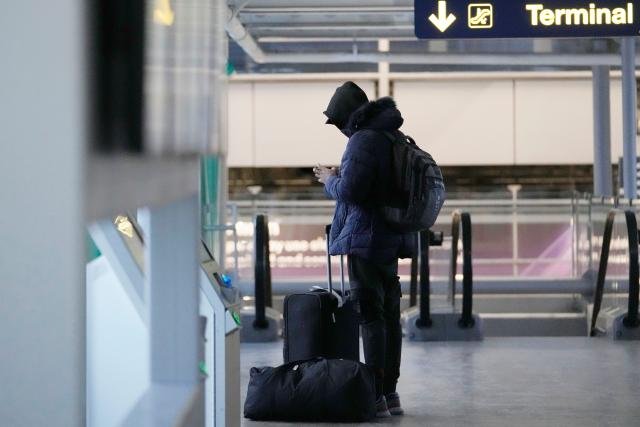Severe winter storms wreaked havoc on travel plans over the holiday weekend, causing the cancellation of over 1,000 flights in the United States. The subfreezing temperatures, heavy snowfall, and strong wind gusts led to disruptions at various airports, impacting both domestic and international flights.
The adverse weather conditions prompted significant flight cancellations, with more than half of the flights at Buffalo Niagara International Airport affected. Other major airports, including Chicago O’Hare International Airport, Denver International Airport, and Seattle-Tacoma International Airport, also experienced scores of cancellations and delays.
Southwest Airlines bore the brunt of the disruptions, with 928 flights delayed (22% of its schedule) and 313 flights canceled (7% of its schedule). United Airlines also faced challenges, canceling 249 flights, which accounted for 10% of its schedule.
Passengers whose flights were affected by the weather are encouraged to be aware of their rights and entitlements. The Department of Transportation provides an airline customer service dashboard with legally binding commitments outlined for airlines. Generally, passengers are entitled to a refund if their flight is canceled for any reason, and they choose not to travel on alternative flights offered by the airline.
However, compensation for delays caused by uncontrollable factors such as weather or air traffic control requirements is usually not eligible. Airlines often provide increased flexibility for rebooking in advance of severe weather events.
Several airlines are offering change waivers to allow passengers to adjust their travel plans in the Northeast in the coming days. Airlines with weather waivers include Alaska Airlines, American Airlines, Delta Air Lines, Southwest Airlines, United Airlines, JetBlue, and Spirit Airlines.
In the event of flight cancellations, passengers are entitled to a refund if they choose not to travel. If passengers accept alternative flights, airlines are committed to rebooking them on the same airline or a partner airline at no extra cost. Airlines are also required to provide meals or compensation for meals if the delay results in passengers waiting for at least three hours. For overnight cancellations, complimentary hotel accommodations and ground transportation to and from the hotel are typically offered.
For significantly delayed flights, passengers may be entitled to compensation for delays caused by reasons within the airline’s control. Rebooking on the same or partner airline, meal vouchers, hotel accommodations, and ground transportation may be provided.
It’s essential for passengers to check their airline’s app or emails for information on the reason behind a schedule change. The FAA’s website can also provide general information on air traffic restrictions by airport.
In cases of controllable delays and cancellations, passengers can request additional compensation by speaking to a customer service agent, waiting in line at the airport, or using airline customer service chat features. Refunds or credits can often be processed over the phone. Travel insurance is recommended, especially during the winter, to provide an extra layer of security in case of unforeseen disruptions.
Travelers are encouraged to be proactive in understanding their rights and taking appropriate steps to address disruptions caused by severe winter weather.
Travel to Europe
Coach rental in Europe
Travel agency Paris
DMC for Europe
DMC for Paris
